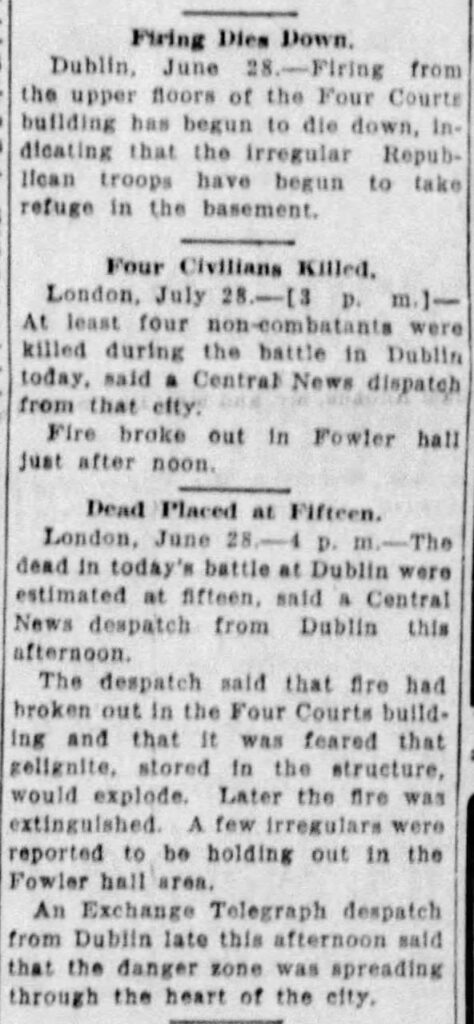Now when I think of the 1920s I think of various political shifts and power dynamics that were centuries old change. Following the end of World War One, kingdoms fell and new independent countries took their place, some countries completely changed ideologies. When I first thought about the 1920s, I thought about the economic success that was felt in most of the Western world. After all the research, I realized that the 1920s were as turbulent as most of the century. In America, Jim Crow laws still were in effect and social injustice was rife. In Europe, the German people were starving and various governments struggled to hold power like the Weimar Republic. England was trying to control what went on in Ireland, which led to bloody results. The conflicts around the world that occurred in the 1920s are often overlooked, especially in the US education system
While researching the Tulsa Race Massacre, I learned about other terrible hate crimes like the Rosewood Massacre in Florida. Like the Tulsa Massacre, the death toll remains highly disputed with the official count being 27, but some estimates being as high as 150. I had no idea about this incident, I only knew about the Tulsa Race Massacre, because of the crazy fact that American planes dropped bombs on America. Lynchings were also very common in this era as well as other notable events like the Harlem riots. In Ireland, the English government tried setting up a puppet government, and by successfully installing them, rekindled hostilities. The puppet Provisional Government enacted England’s will more or less with the illusion of autonomy. Infighting occurred among countrymen and it wasn’t limited to IRA against the Provisional Government, but there was infighting in the IRA as well. Across the English Channel, Germany was trying to rebuild their society, economy, and culture. War reparations bled out the German treasury after they had to shovel over 132 gold marks (around 33 Billion in current USD) France, those who were being paid the reparations desperately needed them. The four-year war was fought heavily inside of Frances’s border, crippling its economy, and agricultural and industrial productions. Manpower all over Europe was hampered so badly, plus the ongoing Avian flu, the generation of men and women who were alive in that era, was dubbed “The Lost Generation.”
It wasn’t all negative, there were advancements in technology and day-to-day life was improved. Affordable cars become more commonplace in America thanks to Ford. Washing machines, radios, and refrigerators also entered American households all in one decade. The quality of life was becoming more convenient as each year passed. As mentioned in Casey’s article about Delta, airlines became a new method of transportation. Consumerism graced the American market, which isn’t a shock given the era known as “The Roaring Twenties”; it is definitely interesting to see how new amenities and commodities made people’s lives much easier.
In conclusion, I left this course with way more knowledge of the period than expected. I always was uninterested in 1920s history, but I feel as if that’s because the subject matters weren’t bought up in an entertaining manner. Given the general autonomy of the course and how much of the learning was independent, I was able to learn about subjects I didn’t imagine I would be able to cover.

Joe is a Sophomore at Ramapo and a Global Communications major enrolled in Discovering Digital History.
